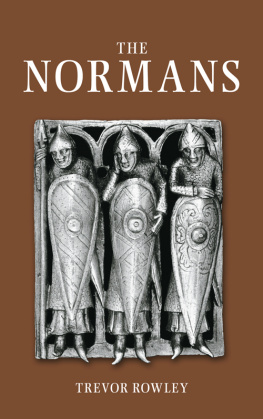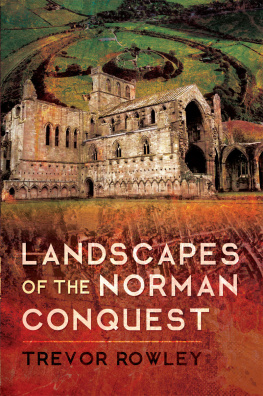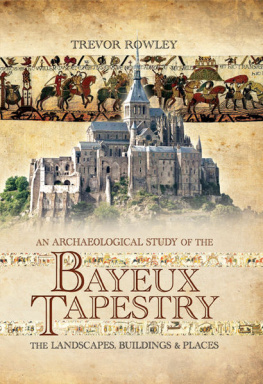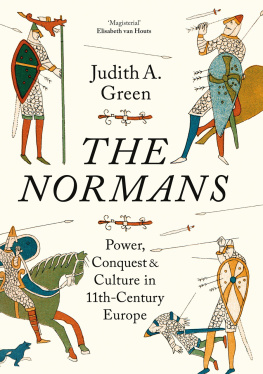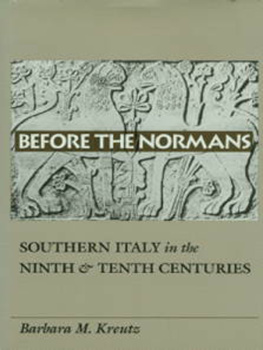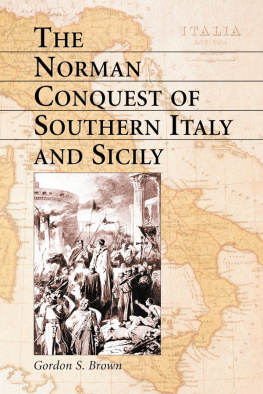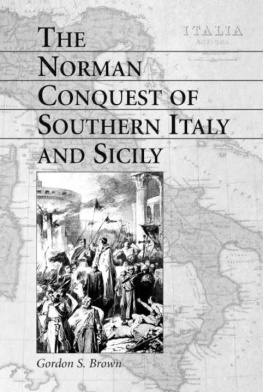Trevor Rowley - The Normans
Here you can read online Trevor Rowley - The Normans full text of the book (entire story) in english for free. Download pdf and epub, get meaning, cover and reviews about this ebook. year: 2009, publisher: The History Press, genre: Art. Description of the work, (preface) as well as reviews are available. Best literature library LitArk.com created for fans of good reading and offers a wide selection of genres:
Romance novel
Science fiction
Adventure
Detective
Science
History
Home and family
Prose
Art
Politics
Computer
Non-fiction
Religion
Business
Children
Humor
Choose a favorite category and find really read worthwhile books. Enjoy immersion in the world of imagination, feel the emotions of the characters or learn something new for yourself, make an fascinating discovery.
- Book:The Normans
- Author:
- Publisher:The History Press
- Genre:
- Year:2009
- Rating:5 / 5
- Favourites:Add to favourites
- Your mark:
- 100
- 1
- 2
- 3
- 4
- 5
The Normans: summary, description and annotation
We offer to read an annotation, description, summary or preface (depends on what the author of the book "The Normans" wrote himself). If you haven't found the necessary information about the book — write in the comments, we will try to find it.
The Normans — read online for free the complete book (whole text) full work
Below is the text of the book, divided by pages. System saving the place of the last page read, allows you to conveniently read the book "The Normans" online for free, without having to search again every time where you left off. Put a bookmark, and you can go to the page where you finished reading at any time.
Font size:
Interval:
Bookmark:
THE
NORMANS
THE
NORMANS
TREVOR ROWLEY

For my mother
and Esther, my fellow traveller
First published 1999
This edition published 2009
The History Press
The Mill, Brimscombe Port
Stroud, Gloucestershire, GL5 2QG
www.thehistorypress.co.uk
This ebook edition first published in 2013
All rights reserved
Trevor Rowley, 1999, 2000, 2004, 2009, 2013
The right of Trevor Rowley to be identified as the Author of this work has been asserted in accordance with the Copyright, Designs and Patents Act 1988.
This ebook is copyright material and must not be copied, reproduced, transferred, distributed, leased, licensed or publicly performed or used in any way except as specifically permitted in writing by the publishers, as allowed under the terms and conditions under which it was purchased or as strictly permitted by applicable copyright law. Any unauthorised distribution or use of this text may be a direct infringement of the authors and publishers rights, and those responsible may be liable in law accordingly.
EPUB ISBN 978 0 7509 5135 7
Original typesetting by The History Press
CONTENTS

ACKNOWLEDGEMENTS

Thanks are due to all those who have helped in the creation of this book: to Peter Kemmis Betty for encouraging me to write it and for providing the opportunity to travel in France and in Italy; to Esther Paist for help with the section on Norman music and to colleagues both in Oxford and elsewhere who have talked with me about various aspects of the Norman world; to Liz Miller and Sheila Lester for producing the typescript and to Mlanie Steiner for the plans.
The cover photograph shows three sleeping Norman knights; a twelfth-century bronze fragment, probably part of a casket, known as the Temple Pyx.
INTRODUCTION

In the English-speaking world, the Normans are almost always thought of in the context of William the Conqueror and his defeat of Harold of England at the Battle of Hastings in 1066. The processes by which Normandy came into being and the activities of Normans in other parts of Europe, notably southern Italy and the Levant, are little known except by Norman enthusiasts and specialist scholars. It is the aim of this book to bring the story of the Norman achievement to the general reader considering not only the Normans in Normandy and England, but also Norman activities in the Mediterranean and to assess the overall place of the Normans in medieval history and their impact in its entirety.
The Norman story at first seems deceptively straightforward: the area which was to become known as Normandy was ceded to the Vikings by the western Carolingian empire in the early tenth century and then went on to become the most powerful principality in northern France. The energy, ruthlessness and administrative ability of the Normans enabled them to subdue and, in some cases, annex the lands of their Frankish neighbours and also to mount a military campaign that was able to defeat a formidable united Anglo-Saxon kingdom in England. In addition, Normans were able to conquer the Byzantines and Latins in southern Italy and the Muslims in Sicily, thereby creating a powerful Mediterranean kingdom consisting of southern Italy and Sicily known as the Two Sicilies. This kingdom provided the springboard for the conquest of Malta and a large section of the North African coast. Normans from both north-western Europe and Italy were involved in the First Crusade, enabling them to establish a formidable presence in the Holy Land and a crusader kingdom at Antioch in the Levant. Norman armies, sometimes by themselves and sometimes with allies, also undertook campaigns in Spain, the Balkans and the Aegean and were even capable of besieging Constantinople at the heart of the Byzantine Empire. The scale of the Norman achievement has prompted some scholars to talk of an interrupted Norman empire stretching from Wales in the west to Syria in the east and from Scotland in the north to Tunis in the south (1).
Such, then, are the bare bones of the Norman story between AD 900 and 1200, yet each of these above statements masks numerous questions and caveats which need to be addressed if we are to understand more fully the character and nature of the Norman world. The term Norman is simply French for Scandinavian, and was applied to the inhabitants of the region of France taken over by Vikings in the tenth century the Terra Northmannorum or the Northmannia. The general perception is that the Normans who came to conquer England with William were essentially Vikings who had been converted to Christianity. There is, however, considerable evidence to suggest that by the beginning of the eleventh century Normandy was essentially a Frankish principality, in many respects not unlike its neighbours. There are also serious questions to be asked about the Viking character of early Normandy, particularly about the numbers of Scandinavians who migrated and colonised the duchy. It now appears that a relatively small number of Scandinavians took over the reins of power in the tenth century from the Franks and, although there was limited later migration by Viking settlers into Normandy, it was on nowhere near the scale imagined by earlier historians. By the middle of the eleventh century there is little evidence of Viking culture surviving in Normandy and, although William himself was directly descended from a Viking warlord (Rollo), few of the knights and their followers who defeated the English at Hastings had Viking blood in their veins. The Franks for the most part had assimilated the Vikings and the resulting cultural blend was Norman.
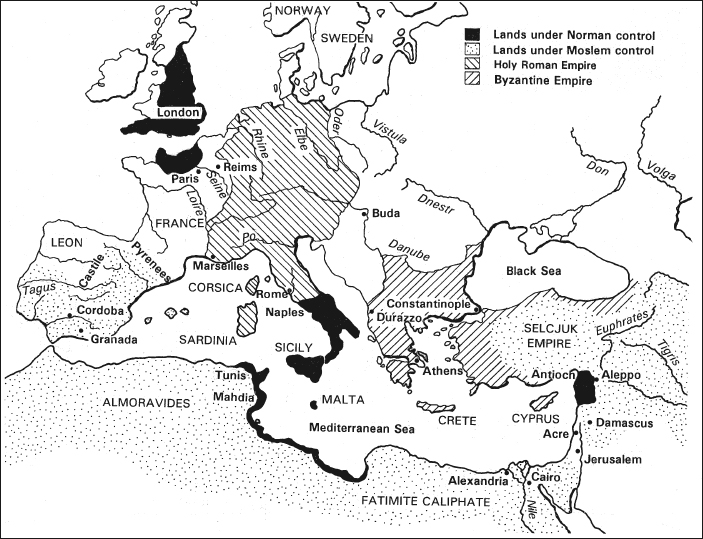
Map showing the full extent of Norman possessions in the twelfth century
Nevertheless, it is an indisputable fact that in 1066 William, Duke of Normandy, defeated and killed King Harold of England at the battle of Hastings and went on to take the English throne. There is, however, room for doubt about the long-term impact of the Conquest of England. The immediate impact of the Norman take-over of Anglo-Saxon England was dramatic and at times brutal. The military conquest was associated with a total transfer of land ownership from Anglo-Saxon thegns to continental knights. The Domesday Book (1086) provides a vivid account, within its sombre and painstaking record, of the way in which England passed from Anglo-Saxon ownership to Norman hands. At face value the Domesday Book indicates a peaceful and well-organised transfer of land from Saxon to Norman; but on the ground the story must have been very different, with much local violence, suffering and confusion. By 1086, out of 10,000 holdings only a handful remained in Saxon hands. It was probably true that Saxons often continued as manorial reeves, and perhaps were often able to maintain a considerable degree of control, but the political and military reality was that the Normans had won, and that they took all the spoils. Similarly in the Church, Saxon leaders were comprehensively replaced by Normans and their allies. Nevertheless, at grass-roots level there was even less Norman folk settlement in England than there had been Scandinavian settlement in Normandy. Furthermore, the families of those Normans that did come to England with William were rapidly anglicised, and within a century of the Conquest it is far more accurate to refer to Anglo-Norman England than to Norman England.
Next pageFont size:
Interval:
Bookmark:
Similar books «The Normans»
Look at similar books to The Normans. We have selected literature similar in name and meaning in the hope of providing readers with more options to find new, interesting, not yet read works.
Discussion, reviews of the book The Normans and just readers' own opinions. Leave your comments, write what you think about the work, its meaning or the main characters. Specify what exactly you liked and what you didn't like, and why you think so.

